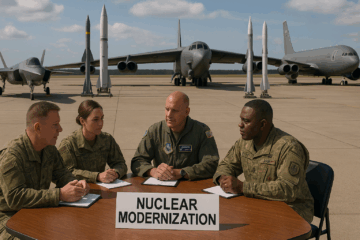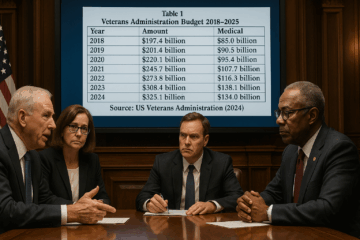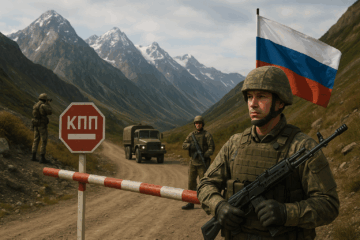In the aftermath of Bashar al-Assad’s fall, Syria has become more than just a war-ravaged state grappling with political vacuum and economic decay—it has transformed into a critical security frontier for many regional players, including Russia, Iran, Turkey, Israel, and the Kingdom of Saudi Arabia (KSA). However, for KSA, its involvement is not a matter of foreign solidarity or Arab diplomacy—it is a strategic imperative. As the geopolitical terrain of Syria shifts under the influence of regional and extra-regional actors, the kingdom finds itself compelled to project power, shape outcomes, and protect its internal stability.
Considering several key factors, including KSA’s concerns and evolving security calculus in Syria post-Assad, as well as the growing competition with Iran, Turkey, and Israel, Riyadh’s multidimensional approach to turning Syria from a threat zone into a buffer state can be highlighted, where it can be assumed that in the eyes of Saudi policymakers, Syria today is not just a crisis—it is a frontline of national defense.
A Post-Assad Vacuum and Saudi Strategic Anxiety
The collapse of the Assad regime, though celebrated in some Arab capitals as the end of a brutal era, has opened a power vacuum in Damascus that threatens to unleash a new phase of instability. For KSA, this vacuum is not just a theoretical concern—it is a real-time geostrategic challenge. The kingdom’s national security architecture is heavily shaped by two core threats emanating from northern Arab lands: the spread of Iranian proxies and the return of extremist networks exploiting failed governance. Syria, with its shattered institutions, porous borders, and competing militias, presents both.
The memory of Iraq’s fragmentation after 2003 lingers heavily. Riyadh understands that when Arab state sovereignty collapses, the resulting anarchy can cross borders. KSA’s southern security challenges in Yemen are still active; to see a similar threat emerge from the north would overstretch its security posture. Thus, Syria has become a high-stakes arena—one that Riyadh cannot afford to ignore.
Competing Powers in Syria’s New Chessboard
Iran: A Threat Undiminished
Despite Assad’s downfall and the recent tactical retreats of Iranian-aligned forces, Tehran is not likely to withdraw easily. On the contrary, it is adapting. Iranian-backed militias, particularly in southern Syria and the Qalamoun region, will likely continue to consolidate control over trade routes and urban districts under the guise of local tribes and militias. In this regard, Tehran’s objectives are threefold. Firstly, it aims to maintain influence in the Levant through non-state actors. Secondly, it seeks to sustain a logistics corridor linking Iran to Lebanon via Iraq and Syria. Furthermore, expanding its asymmetric capabilities—such as drone operations and Captagon trafficking—to destabilize adversaries indirectly remains to be among Iran’s objectives.
Riyadh sees the situation for what it is: a long-term entrenchment strategy. Iranian influence in Syria is no longer contingent on the Assad regime’s survival; it is embedded in paramilitary networks, ideological infrastructure, and narco-trafficking cartels. The proliferation of Captagon—a synthetic drug smuggled extensively into Saudi Arabia—has already become a national crisis. It is both a public health threat and a political signal from Iran: proxy warfare can take many forms.
Turkey: Strategic Expansionism in the North
While Turkey’s military presence in northern Syria is largely framed as an anti-Kurdish campaign, its ambitions extend further. Ankara has built governance mechanisms, school education systems, police units, and currency networks (using the Turkish lira) across key zones from Afrin to Jarabulus.
Saudi Arabia is concerned about Turkey’s influence on multiple fronts. On one hand, it supports factions influenced by the Muslim Brotherhood, which Riyadh opposes ideologically. In addition, it presents an alternative Sunni leadership model in the region, weakening Saudi Arabia’s position of being the central voice of Sunni politics. On the other hand, it fragments Syria’s territorial integrity, which undermines efforts to rebuild a centralized Arab-led post-conflict state.
Though tensions between Riyadh and Ankara have eased recently, especially post-2021 diplomatic resets, deep-seated rivalry remains. Syria is where that rivalry plays out subtly—through reconstruction bids, tribal influence, and diplomatic patronage.
Israel: Security-Driven Fragmentation
Israel’s posture in Syria is surgical, not expansive—but it is no less consequential. Through persistent airstrikes targeting Iranian and Hezbollah assets, covert liaisons with Druze militias in Suwayda, and alleged backing of anti-Iran groups in southern Syria, Israel is carving out spheres of strong influence.
While KSA shares Israel’s concerns over Iranian militarization, it is wary of the side effects. Israel’s support for minority autonomy (especially the Druze) or indirect fragmentation of Syria risks turning the country into a loose collection of zones governed by foreign interests. For Riyadh, the fragmentation of Syria not only endangers Arab unity—it opens space for criminal syndicates, extremist revival, and ideological confusion that could destabilize Jordan and, by extension, Saudi Arabia’s northern frontier.
Riyadh’s Multi-layered Response: From Passive Diplomacy to Strategic Projection
Faced with this hostile mosaic of actors, KSA is executing a comprehensive policy in Syria that mixes security, economics, diplomacy, and media influence.
- Hard Security: Countering Extremism and Trafficking
Saudi security agencies are likely to expand coordination with Jordan and Iraq to monitor cross-border infiltration and drug routes. The Captagon crisis has led Riyadh to treat Syrian drug trafficking not merely as criminal activity, but as hybrid warfare. Defensive fortifications, signal intelligence operations, and counter-smuggling raids are being intensified along the northern corridor.
Simultaneously, Riyadh is likely to be tracking the resurgence of ISIS remnants in eastern Syria. It is likely investing in tribal militias and vetted opposition units capable of neutralizing terrorist footholds without creating long-term militias that could evolve into new threats.
- Economic Leverage: Buying Strategic Influence
Saudi Arabia’s pivot to reconstruction diplomacy is both humanitarian and strategic. By calling for sanctions relief, Riyadh aims to reduce Syria’s reliance on Iran and Russia and reintegrate it into the Arab economic order. Saudi intent in paying Syria’s debt to the world bank as well as possible strategic investments in infrastructure, energy, and services—particularly in Sunni-majority urban centers like Aleppo and Daraa—is intended to build loyalty and dependency.
Moreover, the Kingdom is leveraging sovereign funds and private sector tools to position itself as Syria’s main Arab partner in the post-war phase. It wants to ensure that the rebuilding of Syria does not become a Turkish or Iranian-led project.
An Evolving Alignment with Turkey: Tactical Convergence
Ironically, Syria is also offering Saudi Arabia and Turkey an opportunity for pragmatic convergence. While mutual distrust remains, both states share certain interests. This includes preventing full Iranian dominance, keeping extremist groups marginalized, and rebuilding economic influence in Syria to offset Western retreat.
This has possibly opened a window for joint intelligence sharing and perhaps coordinated reconstruction projects, especially in areas where Sunni communities dominate. For Riyadh, this is most likely not an alliance but a temporary alignment of interests that must be carefully managed.
Supporting Syria’s Transitional Government: A Bid for Arab Sovereignty
Perhaps most crucially, KSA is throwing its weight behind the Syrian transitional government emerging from the post-Assad political framework. Riyadh’s objectives are clear, and these are to reunify Syria under an Arab-oriented administration, prevent federalization or sectarian fragmentation, and, most importantly, marginalize Iranian-aligned or extremist political actors.
Backed by Gulf states, this new Syrian leadership is presumably envisioned as a technocratic, security-minded, and pro-Sunni Arab entity unlike the Assad regime which was viewed as a pro-Iranian. Saudi Arabia’s goal is not to install a puppet but to ensure that the new government aligns with regional stability, Arab League integration, and mutual security commitments.
Syria as a Forward Defense Zone
Saudi Arabia’s posture toward Syria has shifted dramatically—from cautious observation to assertive engagement. The kingdom is likely to be treating Syria not only as a humanitarian concern but as a critical northern front for its long-term security. It is investing in hard power, economic influence, and regional diplomacy to shape Syria’s post-conflict architecture.
In doing so, Riyadh is acknowledging a broader regional truth: the fate of failed or transitioning Arab states cannot be left to the mercy of non-Arab powers, including Iran, Russia, Turkey, and Israel. From Damascus to Daraa, Syria is no longer a distant conflict—it is a forward defense zone for Saudi Arabia’s territorial integrity, generational stability, and regional leadership. However, the challenge ahead lies in sustaining this engagement without overreach, balancing power projection with local legitimacy, and ensuring that Saudi Arabia’s Syria policy remains strategic—not reactive.
Dr. Mohamed ELDoh is a business development and consulting professional in the defense and security sector. Mohamed holds a Doctorate degree from Grenoble École de Management – France, an MBA from the EU Business School- Spain, and an Advanced Certificate in Counterterrorism Studies from the University of St Andrews, UK. He regularly authors articles addressing defense cooperation, counterterrorism, geopolitics, and emerging security threats in the Middle East and Africa. Views expressed in this article are the author’s own.
About the Author

Mohamed ELDoh
Dr. Mohamed ELDoh is a business development and consulting professional in the defense and security sector. Mohamed holds a doctorate degree from Grenoble École de Management - France, an MBA from the EU Business School-Spain, and an Advanced Certificate in Counterterrorism Studies from the University of St. Andrews, UK. He regularly authors articles addressing defense cooperation, counterterrorism, geopolitics, and emerging security threats in the Middle East and Africa.




